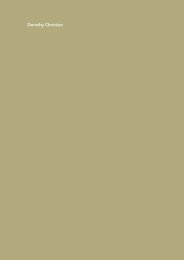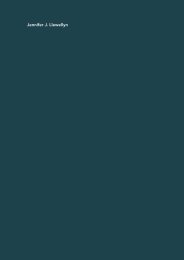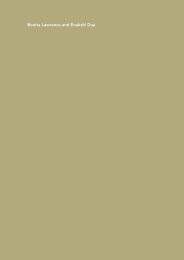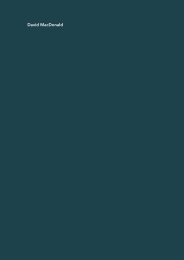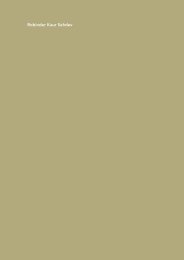and Elwood Jimmy - Speaking My Truth
and Elwood Jimmy - Speaking My Truth
and Elwood Jimmy - Speaking My Truth
Create successful ePaper yourself
Turn your PDF publications into a flip-book with our unique Google optimized e-Paper software.
This stole strength. This stole identity. Marshall Forchuk is a descendent of aUkrainian internee during WWI in Canada. Ukrainians, Serbians, Croatians,<strong>and</strong> others with Austro–Hungarian or German passports were imprisonedbehind barbed wired like animals, called enemy aliens, <strong>and</strong> forced to labourfor no reason other than where they were born. Forchuk said he learned fromhis father who escaped the camps,“You can steal my house, you can stealmy car <strong>and</strong> you have taken nothing. But if you steal my identity like we didwhen we put First Nations kids into residential schools then you have reallystolen something.” Ukrainians have only recently become white throughassimilation, another loss of culture. All those centuries under duress we heldour culture sacred. With wealth <strong>and</strong> security we too are losing culture <strong>and</strong>language—<strong>and</strong>, as James would say, our medicine bundles.Privilege has come at too high a cost. Ukrainians in Canada became respectedpolitical leaders <strong>and</strong> professional in every field. Yet our silence about theinjustices done to us re-forms too often in our silence in speaking out againstthe ongoing effects of colonization against First Nations <strong>and</strong> Métis. Do wehave many of the old terrors of speaking out against authority <strong>and</strong> abuse? Arewe unconsciously afraid of reprisals, being hurt in a less obvious way? Hasit become normalized to become perpetrators by denying the truth, creatingongoing suffering? This is not how we think of ourselves. We think of ourselvesas good people. Now we think of ourselves as people who have education,power, <strong>and</strong> authority—not as people who have been made crazy by theviolence <strong>and</strong> abuse of others. Yet we are still in the cycle of violence … polite<strong>and</strong> legal violence.Within a contemporary context, papâmihâw asiniy synthesizes a numberof very basic <strong>and</strong> universal concepts <strong>and</strong> laws of being. It also magnifiesthe challenges regarding the navigation <strong>and</strong> negotiation of the relationshipbetween the Indigenous <strong>and</strong> the non-Indigenous—the world views, the people,the animals, the minerals, the plants—that define <strong>and</strong> mark the story of thisplace.<strong>Elwood</strong>, I watch over <strong>and</strong> over in nature the violence <strong>and</strong> community buildingof plant <strong>and</strong> animal colonization, the unthinking ways in which plants <strong>and</strong>animals both dominate <strong>and</strong> cooperate in order to survive, create communities,<strong>and</strong> create endless adaptations. Can we think, I wonder, about what we aredoing <strong>and</strong> make choices that embrace the richness of the diversity of nations,the deep wealth that creates possibilities for the planet as it has for us?Can we acknowledge that we are a part of nature, all my relations’ pointsof views, the knowledges that First Nations have always shared freely withthose who were attentive? We are not, as we would believe, the generous ones,Cultivating Canada | 65









